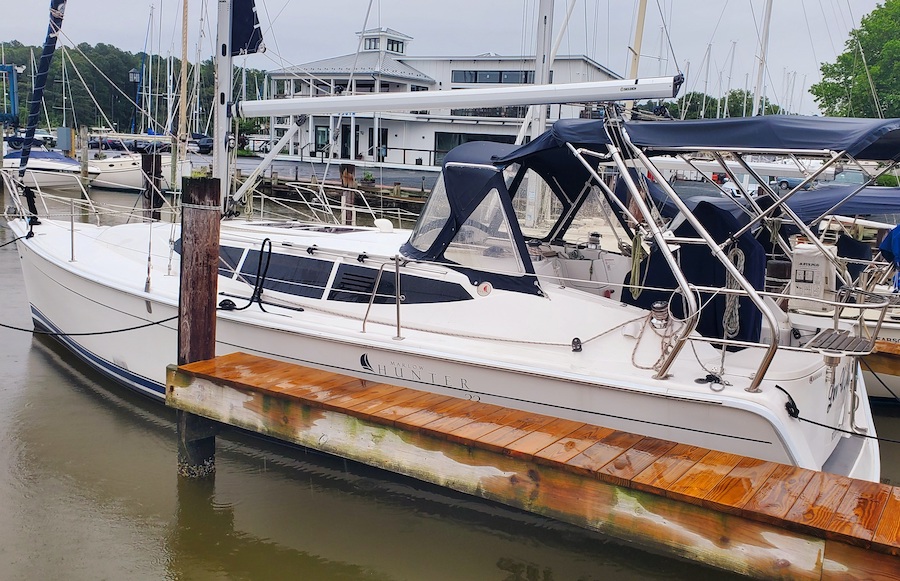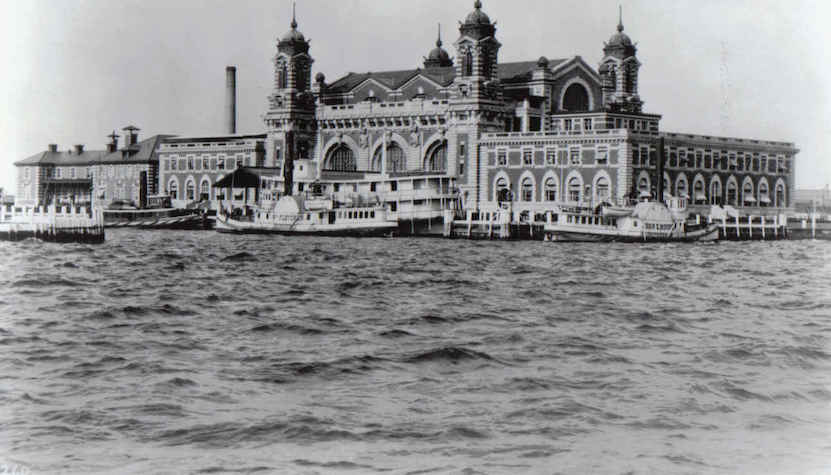By Curt Collier

I’ve moved back onto a sailboat. I know that sounds like an odd way to live, but I do have some experience with the lifestyle. When I first came to work for the Riverdale-Yonkers Ethical Society, I lived at Liberty Landing Marina for the first three years. I used to sit on the back of the boat and stare at the Twin Towers at night. It was all so lovely. That seems like eons ago.
My first reason is actually pretty practical; New Jersey, as well as the US in general, is in the middle of a home-buying frenzy, and we’ve seen the costs of homes skyrocket. My Realtor warned me that I would need to bid against other people to purchase a home, and I quickly replied “no, I’m not.” I will either underbid the others, losing out on a great home, or overbid and end up financially “under water” years from now. It’s just not a good time to buy on a single income. Renting a house is financially out of the question, as well, and living in an apartment that’s less than ideal is not something I’m interested in. Been there, done that, got yelled at by the neighbors.

and the tide requires me to stay aware.”
Living intentionally
My other reason for moving back onto a boat is the whole “intentionality” about this kind of living. While sailboats are in many ways like RVs, you have to deal with so many more issues living on a sailboat, and as an environmentalist, I like being challenged on those issues. How much fresh water is in my tank? How will I dispose of my gray water? Which stuff will I need to get rid of to create more room? And, of course, there are scores of issues surrounding a home that’s literally floating on a fickle sea. What’s the weather like today? Twice a day (in New York Harbor), the ocean takes in deep breathes in tidal exchanges. Sometimes you’re riding the crest, sometimes you’re near the bottom. C’est la vie!
Sleeping on a boat is another challenge, although one I readily love. Occasionally you’re jostled from your sleep when some boater’s reckless wake tosses your home about. Sound carries through the water, and on a sailboat, you can hear everything. But the gentle rocking back and forth, which might be annoying to some, sends me off into a deep slumber.
How complacent I was
There is, indeed, so much to think about when living in such a home. I realize how complacent I was living in my condo in Norfolk, Virginia. The condo association took care of most of the upkeep and maintenance. While I was on the board, ultimately, I knew that the place would be kept up by others during my frequent travels. Having put most of the bills on autopay, I can’t even remember who services my electricity, my water, the cable bill, and so on. That’s a pretty nice privilege to have…and certainly it has a myriad of benefits. But I also know that such a privilege comes at a higher cost in other ways. What is the impact that living in such a home has on the planet? As a biocentrist, I needed more direct feedback between my lifestyle choices and its environmental bearing on the Earth. Thinking about water, food, weather, energy, and the tide requires me to stay aware. It’s a lifestyle choice that keeps me informed, to say the least.
The year I started at Riverdale-Yonkers, I purchased a boat from a member of the St. Louis Society who was getting too aged to take care of it. I shipped it to Annapolis, MD, and eventually made the same trip I’ll be making in a few days; up the Chesapeake Bay, across the C&D canal, down the Delaware Bay to Cape May, NJ. Then “outside” in the Atlantic Ocean, to Atlantic City, and finally outside again from Atlantic City to New York Harbor (a 14-hour sail that day alone). I made that trip years ago with my mom and dad, and as we boated past the Statue of Liberty, I commented that I was arriving in New York the same way millions of others had immigrated to the area. There’s something cool about that connection.

Passing Ellis Island on my way to my dock at Liberty Landing Marina, I’m often reminded of what a scary time that must have been for legions of foreigners hoping to be accepted into this country. If you’ve not been to Ellis Island, I suggest you make a trip to see its interior. There the interpretive pictures and displays give you a glimpse of the process many immigrants experienced. One commonality in the photos is that very few of them were smiling, fearing that at any moment everything they hoped for, every dream of a new life, could suddenly come to an end if the officials deemed them unfit for entry. Each time I pass that island, I’m reminded how often life comes down to mere odds and circumstances. Living on the border between Texas and Mexico, I saw daily that desire for a new world. It’s sobering.
The world they created is alive all around us
But I’m also reminded that more often than not, millions made it through that gate toward a better life. Millions took a chance, and it paid off. Perhaps I’m just an optimist, but that story resonates with me, too. Just behind Ellis Island is the train station where newly accepted Americans made their way, embarking on a new adventure. Behind their back, they could easily glimpse the high rises and hustle and bustle of a new home. Those train tracks are all quiet now, and bushes push up between the platforms. But the world they created is alive all around us, and we, too, have the opportunity to embrace it.
It’s time for summer. A time to play, to sip lemonade on your porch or terrace. Take a visit to a garden, walk along the seashore…. perhaps you’ll see a sailboat lumbering by. Newcomers are heading toward our community; the engines of progress are about to get fired up. But not now. Now’s the time for books and popsicles. Have a cold beer and laugh hard and loud with friends over a late-night dinner. Try on a new sundress or a silly hat. Go on, live a little. You deserve it.
Curt Collier is leader of the Ethical Culture Society of Bergen County.


